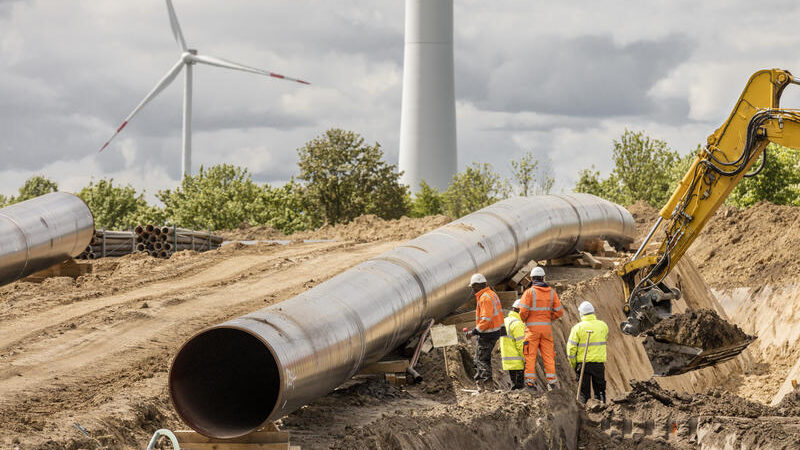A draft communique includes calls investments in gas production but that language is likely to prove controversial among the G7 climate ministers
Climate ministers of the Group of Seven countries may make the case for new investments in gas supply, despite assessments that such investments would thwart globally agreed climate change goals, according to a document seen by Reuters.
Climate change and energy ministers from G7 countries will meet on April 15-16 in Sapporo, Japan, to discuss efforts to address climate change.
A draft of the G7 statement said ministers would agree that new upstream investments in gas were needed, because of the energy fallout from Russia’s invasion of Ukraine. Russia slashed gas deliveries to Europe last year, causing a global supply squeeze and soaring prices in global markets.
“In this context, in this particular contingency, we recognize the need for necessary upstream investments in LNG (liquefied natural gas) and natural gas in line with our climate objectives and commitments,” the draft statement said.
The draft is still being negotiated by the G7 countries, and may change significantly before it is adopted.
Commitment on LNG investments, if kept in the final communique, would be a win for the G7 meeting’s host Japan, which calls LNG a ‘transitional fuel’ to cleaner energy that it says could be needed for at least 10-15 years.
But such investments would run counter to assessments by global energy watchdog the International Energy Agency, which has said no new investments in fossil fuel supply can be made if the world is to stop global warming exceeding 1.5 degrees Celsius – the limit that would avoid its most severe impacts.
The world must substantially reduce fossil fuel energy use this decade to avoid the most devastating impacts of climate change, the U.N.’s IPCC climate science panel has said. Projected CO2 emissions from existing fossil fuel projects would blow the remaining carbon budget to meet the 1.5C goal, according to the IPCC.
G7 climate ministers had said at a meeting last year that investment in the LNG sector was needed to respond to the energy crisis, but they had not explicitly endorsed upstream investments in
Read More

